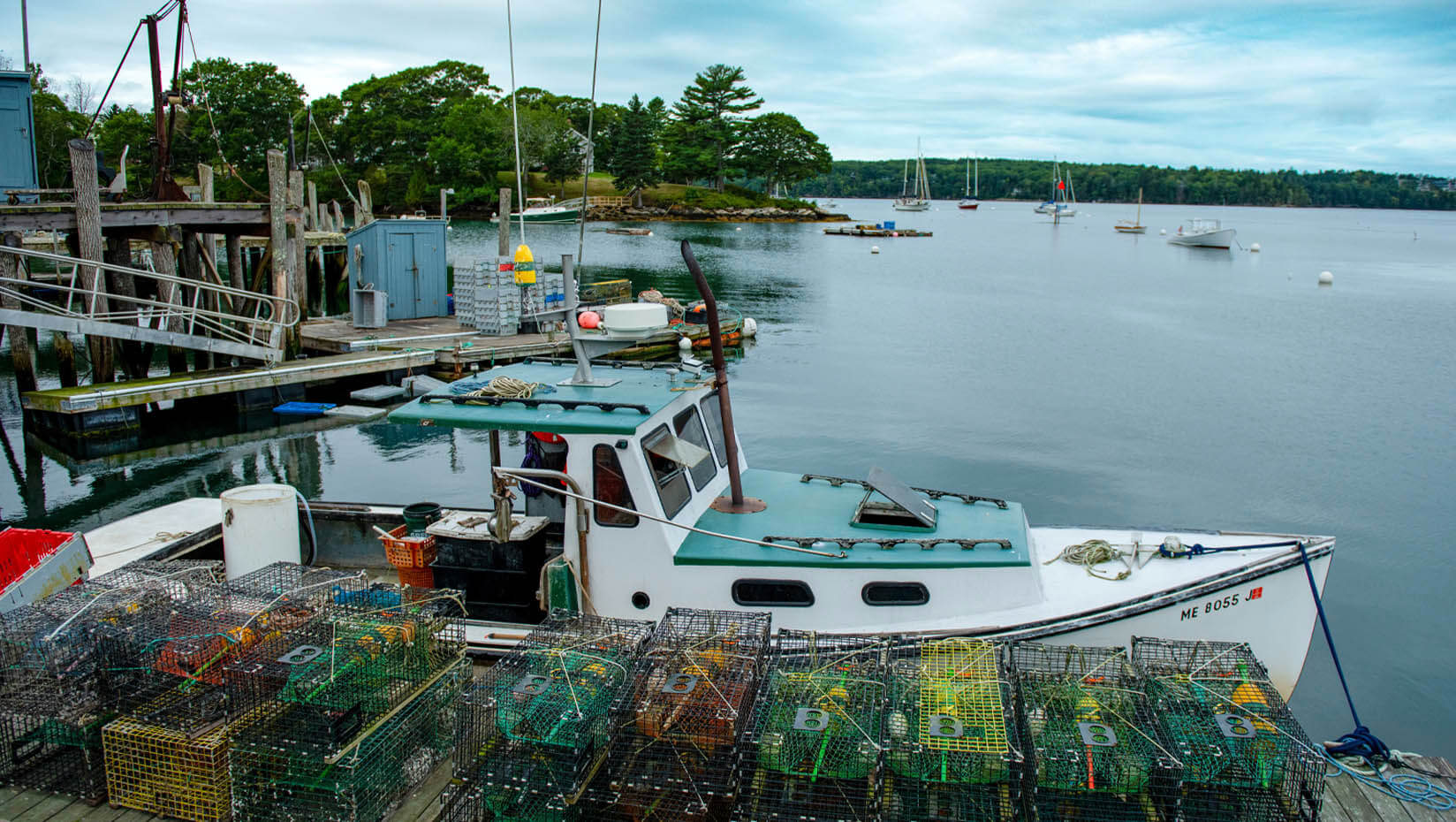
From hatch to catch, industry and UMaine scientists collaborate on lobster research
The University of Maine’s collaborative research with the lobster industry will continue thanks to the support of businesses that rely on the fishery.
The national restaurant chain Red Lobster, Cranberry Isles Fishermen’s Co-Op in Islesford, Maine, and Ready Seafood Co., a supplier and processor headquartered in Saco, Maine, teamed up to fund this sixth consecutive field season in 2021. The program monitors the settlement of baby lobsters in deepwater habitats of the Gulf of Maine, an extension to long-standing shallow water monitoring of lobster nurseries in New England and Atlantic Canada.
“Red Lobster is committed to supporting efforts to ensure there’s seafood to enjoy, now and for generations,” said Nelson Griffin, chief procurement and real estate officer at Red Lobster.
“We believe the University of Maine’s scientific research is critical to helping the industry understand how the lobster population is changing and what factors may be causing shifts in overall abundance and location. This data can then be used to inform fishing and sourcing practices and help understand and mitigate environmental pressures.”
The American lobster is the most valuable single-species fishery nationwide. As Maine’s top export commodity, it serves as an economic anchor along North America’s eastern seaboard, supporting businesses from restaurants to boat builders.
Led by the University of Maine, the American Lobster Settlement Index was initiated in 1989 by Richard Wahle, a research professor in the School of Marine Sciences and director of the Lobster Institute. The index gives those who manage and rely on the fishery a portal to what the future may hold for lobsters.
In 2016, in collaboration with the fishing industry and Maine Department of Marine Resources, Wahle expanded monitoring to include greater depths with novel bio-collectors deployed from fishing vessels. This new deepwater program has been powered by a combination of public and private support from its inception. Cooperating lobstermen hail from Casco Bay at the southwestern end of Maine’s coast to the Cutler shore downeast. These locations represent contrasting thermal regimes in the Gulf of Maine. Together with the continued shallow water monitoring, this effort informs how depth-wise and along-shore settlement patterns respond to changes in temperature.
Results to date indicate that lobster larvae settle in deeper water than previously thought, especially in Down East Maine where strong tides create consistent temperatures from the surface to the seafloor. The project has documented recently settled lobsters in collectors set as deep as 180 feet.
Data collected during the 2021 field season will help build a data time series to provide fishery managers and coastal communities the information they need to anticipate and respond to environmental change. Over the long term, Wahle hopes to contribute to better understanding of the role a warming ocean plays on the changing distribution and abundance of lobsters in the Gulf of Maine.
“Our findings are improving our understanding of how the lobster’s earliest life stages respond to changes in the environment and the implications of those changes for the future of the fishery,” Wahle says.
This year’s research will be made possible through gifts totaling $75,000 from Cranberry Isles Fishermen’s Co-Op, Ready Seafood and Red Lobster.
Ready Seafood has supported the deepwater monitoring project since its inception, with the first two years being sponsored in collaboration with Maine Sea Grant and the Maine Department of Marine Resources. When funding from Sea Grant ended, Ready Seafood stepped in with a $75,000 gift to support a third research field season in 2018, and has worked to ensure funding continued for the project in subsequent years.
“What I love about this project is that it is a real example of industry and science working together to improve the sustainability of Maine lobster,” said Curt Brown, a lobsterman and marine biologist with Ready Seafood. “We are humbled by the support of Red Lobster, Cranberry Isles Fishermen’s Co-op and UMaine.”
Contact: Erin Miller, erin.miller@maine.edu
